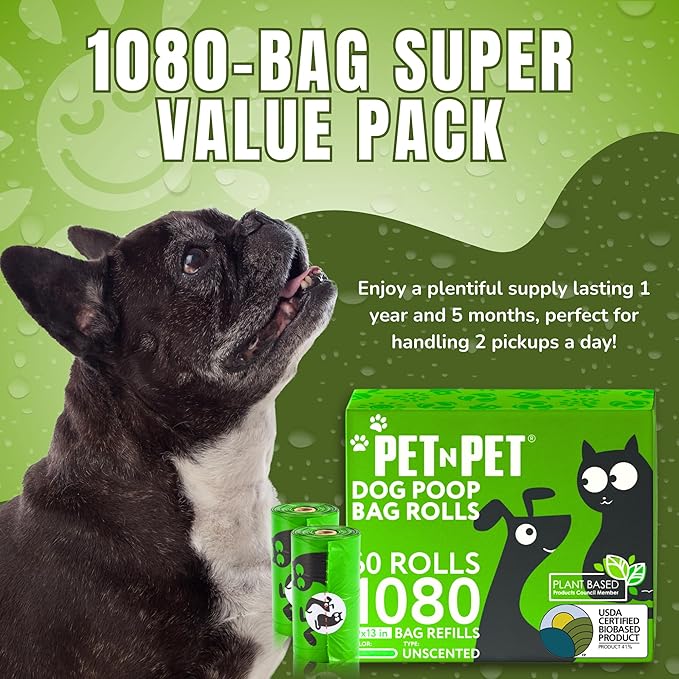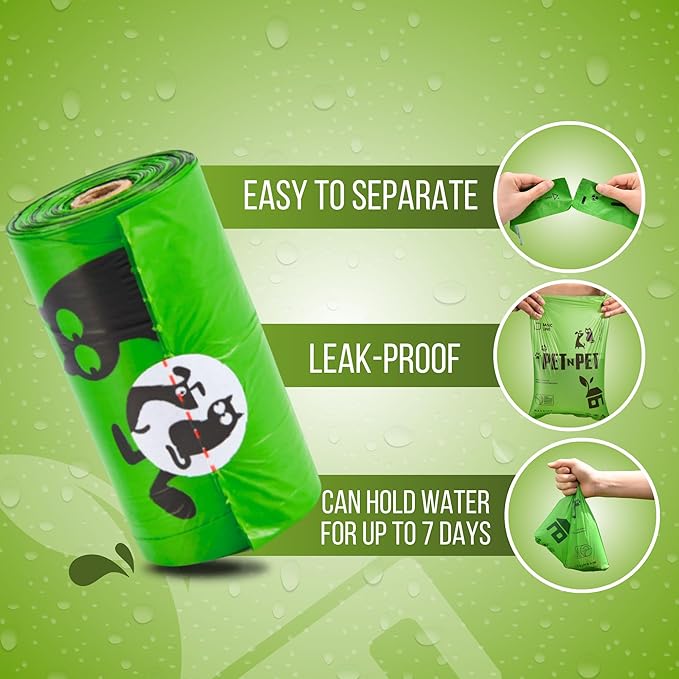
Compostable vs Biodegradable Pet Products: What’s Better?
As pet owners become more environmentally conscious, the demand for eco-friendly pet products is on the rise. Two terms often encountered in this space are “compostable” and “biodegradable.” While they may seem similar, they have distinct meanings and implications for sustainability. Understanding the difference can help you make better choices for your pet and the planet.
What Does Biodegradable Mean?
Biodegradable products are those that can break down naturally through the action of microorganisms such as bacteria, fungi, and algae. This process converts the material into natural substances like water, carbon dioxide, and biomass. However, the time frame for biodegradation can vary widely—from a few weeks to several years—depending on the material and environmental conditions.
In the context of pet products, biodegradable options might include certain types of poop bags, toys, or bedding that eventually decompose. However, not all biodegradable products break down quickly or completely in typical landfill conditions, which can limit their environmental benefits.

What Does Compostable Mean?
Compostable products are a subset of biodegradable products that break down into nutrient-rich compost under specific conditions, usually within a shorter time frame (often 90 days or less). Compostable items must meet strict standards to ensure they decompose without leaving toxic residues and contribute positively to soil health.
For pet products, compostable options often include poop bags, liners, and some types of cat litter. These products are designed to break down efficiently in industrial composting facilities or, in some cases, home composting systems.
Key Differences Between Compostable and Biodegradable Products
- Breakdown Conditions: Compostable products require controlled conditions (like heat, moisture, and oxygen levels) to decompose fully, whereas biodegradable products can break down under a broader range of conditions but may do so slowly or incompletely.
- Time Frame: Compostable products generally break down faster—usually within a few months—while biodegradable products may take much longer.
- Environmental Impact: Compostable products contribute positively to soil health when properly processed, while biodegradable products might leave microplastics or other residues if they don’t decompose fully.
Best Compostable Poop Bags for Large Dogs (Top 5 in USA)
Which Is Better for Pet Products?
Choosing between compostable and biodegradable pet products depends on your priorities and local waste management options.
- Compostable pet products are often the better choice environmentally because they break down quickly and enrich the soil. However, they require access to appropriate composting facilities. Without these, compostable items might end up in landfills, where they degrade slowly.
- Biodegradable products can be useful where composting isn’t available, but their environmental benefits are less certain due to the variability in breakdown time and potential residue.
10 Ways to Reduce Your Pet’s Carbon Pawprint
Tips for Choosing Eco-Friendly Pet Products
- Check Certifications: Look for certifications like the Biodegradable Products Institute (BPI) or ASTM standards that verify compostability.
- Know Your Local Facilities: Understand what types of waste your community accepts for composting or recycling.
- Reduce and Reuse: Whenever possible, opt for reusable pet products to minimize waste.
- Proper Disposal: Dispose of pet waste and products according to local guidelines to maximize environmental benefits. Best Reusable Pet Accessories,
Conclusion
Both compostable and biodegradable pet products offer environmentally friendlier alternatives to traditional plastics. Compostable products generally provide more reliable and faster decomposition, making them a preferable choice when proper composting facilities are available. As a pet owner, being informed and mindful about the products you choose and how you dispose of them can significantly reduce your pet’s environmental footprint.
